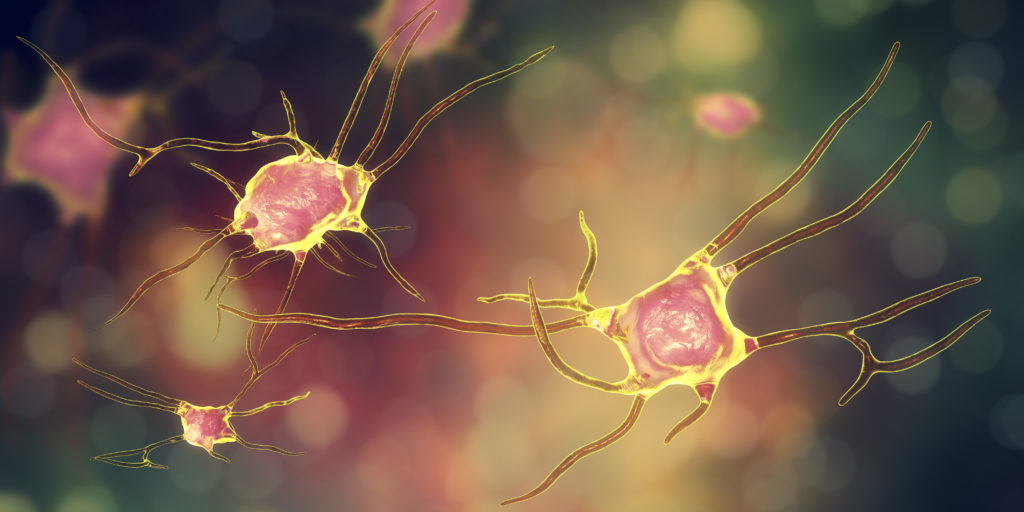Quick Hits
Daily brief research updates from the cognitive sciences

Always nice to know that you brain can grow – and it is still met with surprise when I explain how this can happen to audiences when speaking in public. But this recent research gives some fascinating insights into a new mechanism of growth in the brain.
Researchers around Terry Dean of the Children’s National Hospital in the USA have found a mechanism that is controlled by daily rhythms and this could lead to new insight and more effective methods to help recovery after brain injury.
Your brain cells, neurons are pretty fixed with new generation of cells only in very limited areas in the brain. However, they can rebuild and strengthen connections. There are also group of cells called micro glia or glial cells and these are considered the brains “helping” cells – they are also essential to healthy brain functioning performing many critical functions.
One of these goes under the technical name of NG2-glia, or “oligodendrocyte precursor”, sorry I know that won’t help you (in short, it’s one of the brain’s helping cells). Anyhow these are one of the few cells in the brain that can continuously regenerate. And what the researchers found is that these follow daily rhythms with proliferation of these cells coinciding with the highest levels of a factor known as Bmal-1RNA. This is a protein that helps the body clock stay in rhythm and is highest when we should be most active – during the day.
What is interesting is that this can help us guide recovery better by taking into account times of day during treatment – we also know that traumatic brain injury (TBI) can disrupt daily rhythms which could explain some of the negative effects.
Also, of interest is that we would probably assume that much healing would take place as night – but this shows not so in this particular case.
This highlights once more the importance of daily rhythms in just about everything!

Andy Habermacher
Andy is author of leading brains Review, Neuroleadership, and multiple other books. He has been intensively involved in writing and research into neuroleadership and is considered one of Europe’s leading experts. He is also a well-known public speaker, speaking on the brain and human behaviour.
Andy is also a masters athlete (middle distance running) and competes regularly at international competitions (and holds a few national records in his age category).
References
Terry Dean, Aissia Victoria Koffi, Evan Goldstein, Javid Ghaemmaghami, Vittorio Gallo.
Endogenous circadian clock machinery in cortical NG2-glia regulates cellular proliferation.
eneuro, 2022
DOI: 10.1523/ENEURO.0110-22.2022
More Quick Hits
How Sleep Helps Your Brain Manage Fear
Quick HitsDaily brief research updates from the cognitive sciences leep on i” is common advice for many reasons. Often to consolidate thoughts and help boost creativity. This is a well-known effect. We also know that sleep is the time that helps to...
Video games can boost children’s intelligence
Quick HitsDaily brief research updates from the cognitive sciences ell, this is not the answer many of us would expect, and it goes against other logic of spending more time doing other things such as reading or socialising with friends...
Just how many people get COVID brain?
Quick HitsDaily brief research updates from the cognitive sciences here are many questions still open about COVID and the brain. There is no doubt that long COVID exists, and this can have dramatic impacts on people’s lives. But just how...
Brain networks and losing weight – successfully or not
Quick HitsDaily brief research updates from the cognitive sciences s weight loss all in the mind? Well, with the danger of oversimplifying a complex topic, this latest research shows it is, and shows precisely how and with what networks. So,...
Reversing aging – with poo!
Quick HitsDaily brief research updates from the cognitive sciences ho wouldn't want to age better - well the results of an unsual study are in and the results are promising and may make many of you who are aging prick up your ears. The...
Brisk walking slows biological aging
Quick HitsDaily brief research updates from the cognitive sciences f you want to age better, then walk quicker, or those who walk quicker, age slower. That is the result of a recent study of 400,000 UK adults mapped to genetic markers of age...






